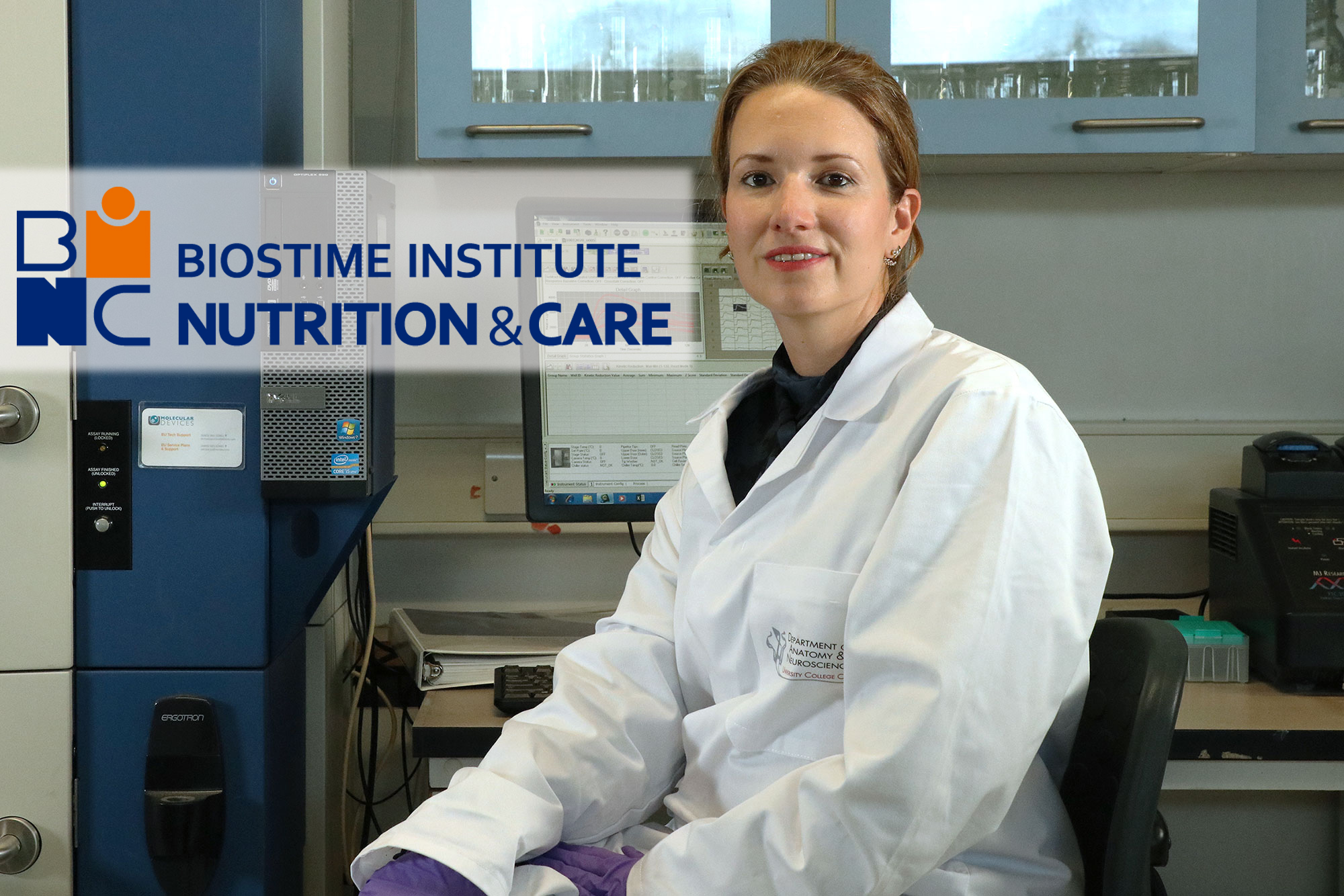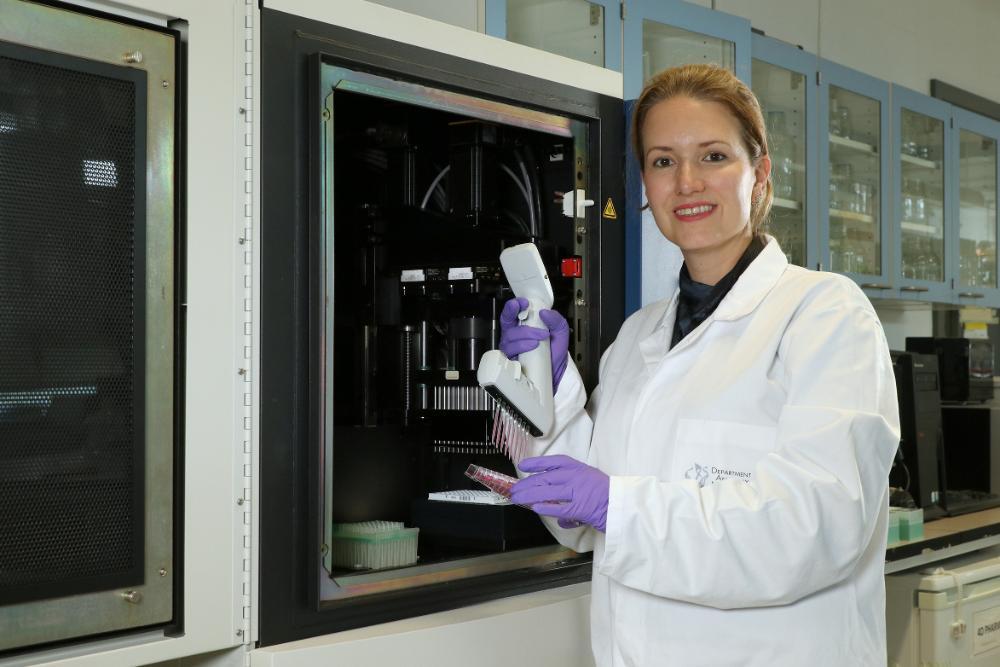In This Section
- Home
- Staff Profiles & Phone Book
- About the Department
- Welcome from Head of Department of Anatomy and Neuroscience
- A History of the Department
- A history of the Department; The early years to the 1980s
- A history of the Department; The move from the Windle Building to BSI and WGB
- UCC Professors of Anatomy and Heads of Department
- The development of the UCC HUB
- Current students, recent research graduates and awards
- Useful Links
- Study Anatomy
- Study Neuroscience
- Research
- Neural circuitry underlying Neuropsychiatric and Neurological Disorders 2026
- Neurogastroenterology 2026
- Developmental Neuroscience and Regeneration 2026
- Neurodegeneration 2026
- Neuroinflammation 2026
- Neuroprotection and Therapeutics 2026
- Neuroproteomics and Molecular Psychiatry 2026
- Anatomy Education Research 2026
- Research Facilities 2026
- Postgraduate Research Programmes 2026
- UCC Anatomical Donations
- Biosciences Imaging Centre
- BSc Medical and Health Sciences
- News & Events
- News Archive 2024
- News Archive 2023
- News Archive 2022
- News Archive 2021
- News Archive 2020
- News Archive 2019
- News Archive 2018
- News archive 2017
- News Archive 2016
- News Archive2015
- News Archive 2014
- News Archive 2013
- News Archive 2012
- News Archive 2011
- BRAIN AWARENESS WEEK 2023
- Department Events and Conferences
- Seminar series 2019_2020
- photo galleries
- Narrowing the void Conference 2023
- Photos of BSc Medical and Health Sciences Mentoring launch 2022
- International Women's Day 2023
- 2023 BRIGHT FUTURES - Celebrating our researchers
- 2023 UCC Futures - Future Ageing & Brain Sciences
- Recent Graduations July 2023
- Anatomy and Neuroscience Top 100 Anatomy Physiology 2023
- BRAIN AWARENESS WEEK 2023 FUN AND GAMES EVENT
- Medical and Health Sciences First year class 2023
- 2023 Brain Awareness week Scientific discussion photo gallery
- World Anatomy Day 2023
- BSc MHS MENTORING PROGRAMME 2023
- BSc Medical and Health Sciences Graduation 2023
- BSc Neuroscience Graduation Photo Gallery 2023
- Dr Kathy Quane Nov 2023
- THANKSGIVING PHOTOS 2012
- Photo Gallery: Society of Translational Medicine Careers Fair 2023
- Photo Gallery:2023 TRAIN AWARDS
- Photo Gallery:2024 Creative Week St Joseph's NS
- Photo Gallery: Department of Anatomy and Neuroscience Thanksgiving Service 2024
- Photo Gallery: Professor Aideen Sullivan farewell party
- Photo Gallery: Irish Pain Society Annual Scientific Meeting Cork 2023
- Photo Gallery: 2024 Medical and Health Sciences Graduation
- Photo Gallery: Medical and Health Sciences Meet and Greet 2024
- Photo Gallery: 2024 BSC NEUROSCIENCE Graduation
- Photo Gallery: 2025 INTERNATIONAL WOMEN'S DAY
- Photo Gallery: 2025 BSc Neuroscience class and staff
- Photo Gallery: 2025 BRAIN CONNECTIONS
- BSc Neuroscience Graduation Photo Gallery 2025
- World Anatomy Day 2025
- UCC Learning and Teaching Showcase 2025
- MSc Human Anatomy Graduation Photo Gallery 2025
- Narrowing the Void Conference 2023
- Department of Anatomy and Neuroscience Contact Us
Dr Harriët Schellekens’ PROTECT project awarded BINC funding

Congratulations to Dr Harriët Schellekens who has been awarded BINC Foundation funding to explore the role of the gut microbiota in mediating the effects of early-life nutrition on neurodevelopment of appetite, food reward and food preference in adulthood.
Dr. Harriët Schellekens, a funded investigator with APC Microbiome Ireland SFI Research Centre and lecturer in the Department of Anatomy & Neuroscience was awarded funding from the Geneva-based BIOSTIME Institute Nutrition & Care (BINC) Foundation for her project “PROTECT: PRiming fOr healThy Eating via the diet-miCrobioTa-gut-brain axis”, The project team includes collaborators Dr Siobhain O’Mahony, Department of Anatomy and Neuroscience UCC, Professor Suzanne Dickson, Department of Physiology, University of Gothenburg, and PhD student Cristina Cuesta Marti, who will work under the co-supervision of Dr Schellekens and her colleague Dr Ger Clarke.
Dr Schellekens explains how “early life exposure to high-fat and high-sugar diets can negatively impact metabolic health later in life. Early life diet is crucial in the development of appetite signalling in the brain and impacts energy metabolism and the brain pathways that determine how we process rewarding foods, especially those high in calories. This can have consequences later in life on the types of food we like to eat, driving the preference for fatty and sugary foods, which increases the risk for obesity and type 2 diabetes.
Early life exposure to unhealthy diets has also been shown to alter how the bacterial community in our gastrointestinal tract develops and changes in gut microbiota have been linked to alterations in food intake and host eating behaviour. However, it is currently not known if the gut microbiome in early life is critical for the establishment of healthy eating behaviour in adulthood.”
This PROTECT project will specifically focus on the ‘hunger-hormone’, ghrelin, which uniquely stands out as the only gastrointestinal signal that stimulates food intake, regulates appetite and reward signalling in the brain, and modulates fat preference and food choice. Ghrelin levels are modulated by the gut microbiota and ghrelin plays a role in the development of brain feeding pathways in early life.
Dr Schellekens and her team will investigate the extent to which the gut microbiota in early life are involved in the establishment of healthy eating behaviour in adulthood, and if the effects are mediated via ghrelin signalling , and whether microbiota-targeted interventions can protect against diet-induced negative effects on appetite, food preference and reward processing.

The PROTECT team will initially investigate the role of the intestinal microbiota following early life exposure to high-fat/high-sugar (HFHS) diet on food intake behaviour, food preference and central reward signalling in adulthood. The second part of the project will seek to validate the effectiveness of microbiota-targeted approaches, in preventing the detrimental neurobehavioral outcomes, lowering metabolic risk later in life. One strategy that will be explored, will be supplementation with a metabolically active Bifidobacterium longum strain (APC1472), which was recently identified in a study by Dr Schellekens and colleagues, Professor Catherine Stanton, Professor John Cryan and Professor Ted Dinan (Schellekens et al. EBioMedicine, 2021) to have anti-obesity effects in mice and in humans. This strain since has shown to modulate ghrelin signalling in the brain of mice (unpublished data).
PROTECT will be the first study investigating the impact of early life nutrition and microbiota priming on sustained dietary preference in adulthood. Findings from this study will be directly relevant for the research to BINC-Geneva and the development of comprehensive microbiota-targeted health solutions in the field of infant and maternal nutrition and care, providing the best possible start in life.
For more on this story contact:
News item and photographs B. Riedewald
Department of Anatomy and Neuroscience
Anatamaíocht agus Néareolaíocht
Contact us
Room 2.33, 2nd Floor, Western Gateway Building, University College, Cork, Ireland
